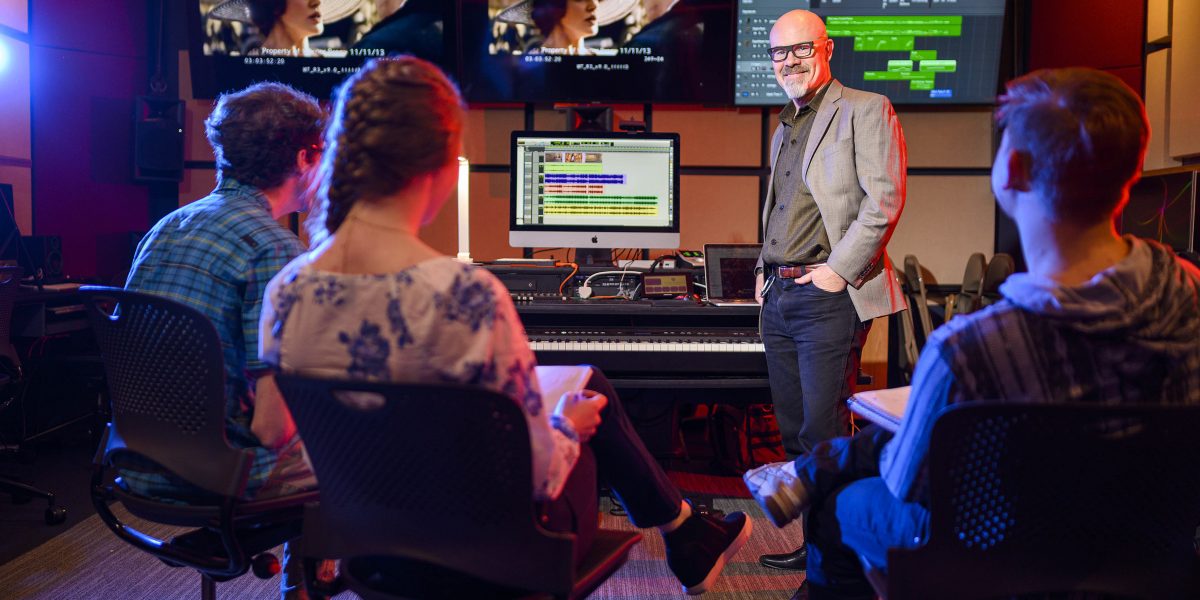Arts & Culture
Music For The Future
A new Peabody major teaches students how to compose for an ever-changing media landscape.
Walking through the lobby of the Peabody Institute, the sound of piano practice and chamber music reverberates through the marble building. The esteemed conservatory has been a classical training ground for young musicians and composers since the mid-1800s, but Peabody’s newest major pivots away from the traditional.
Last fall, Thomas Dolby, 1980s synth-pop pioneer of “She Blinded Me With Science” fame, and Chris Kennedy, a Baltimore-based composer, formed the four-year Music for New Media program to prepare students for the modern-day requirements of the music business. “These days, everybody is working remotely using the same piece of software,” says Dolby, commenting on the collaborative nature of film composition. “Dialogue, sound effects, and music are all being changed at the same time.”
During the first year of the program, students learn the ways of “linear” music composition, which is used to write music for film and television. First-year students spend their time in the Music for New Media classroom plugging away at projects such as composing original scores for famous movie scenes on industry-standard programming environments.
The following year, students experiment with “non-linear” media, such as games, virtual reality, and augmented reality scenarios. Sophomore Avery Tyler has grown attached to the composition of video game music, despite not playing video games growing up. “I went from thinking, ‘This is a way to further my music career’ to thinking, ‘Wow, I actually really like this!’” Tyler says.
While the major has only been around for two years, many students have already found opportunities for composition work through the Johns Hopkins network. Several have scored for films and animations made by MICA students, or, in the case of sophomore Jolene Shao, a theme song for a Chinese web series and a jingle for a rice commercial. The program is the first of its kind in a conservatory-style school, and it shifts Peabody toward the likes of technical schools, such as Berklee College of Music. Now, students can learn about programming and the music business while also continuing their violin training.
Outside of teaching the students about media scoring, Dolby hopes to imbue them with a sense of fearlessness toward the uncharted territories that technology opens up. “The best thing I have to teach these guys is, how, as an artist, do you respond to a new challenge?” Dolby says. “Technology is evolving all the time, and pop culture is evolving all the time. How do you respond to that and express yourself with new media?”
